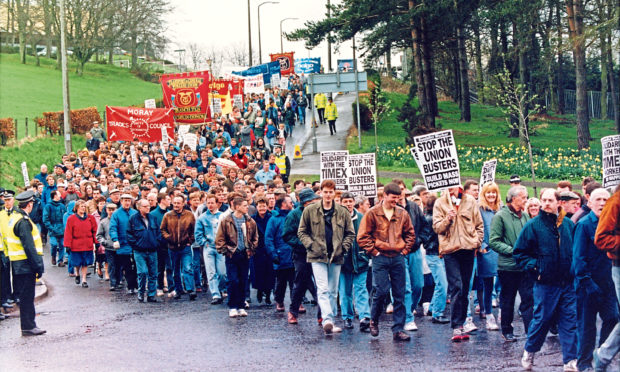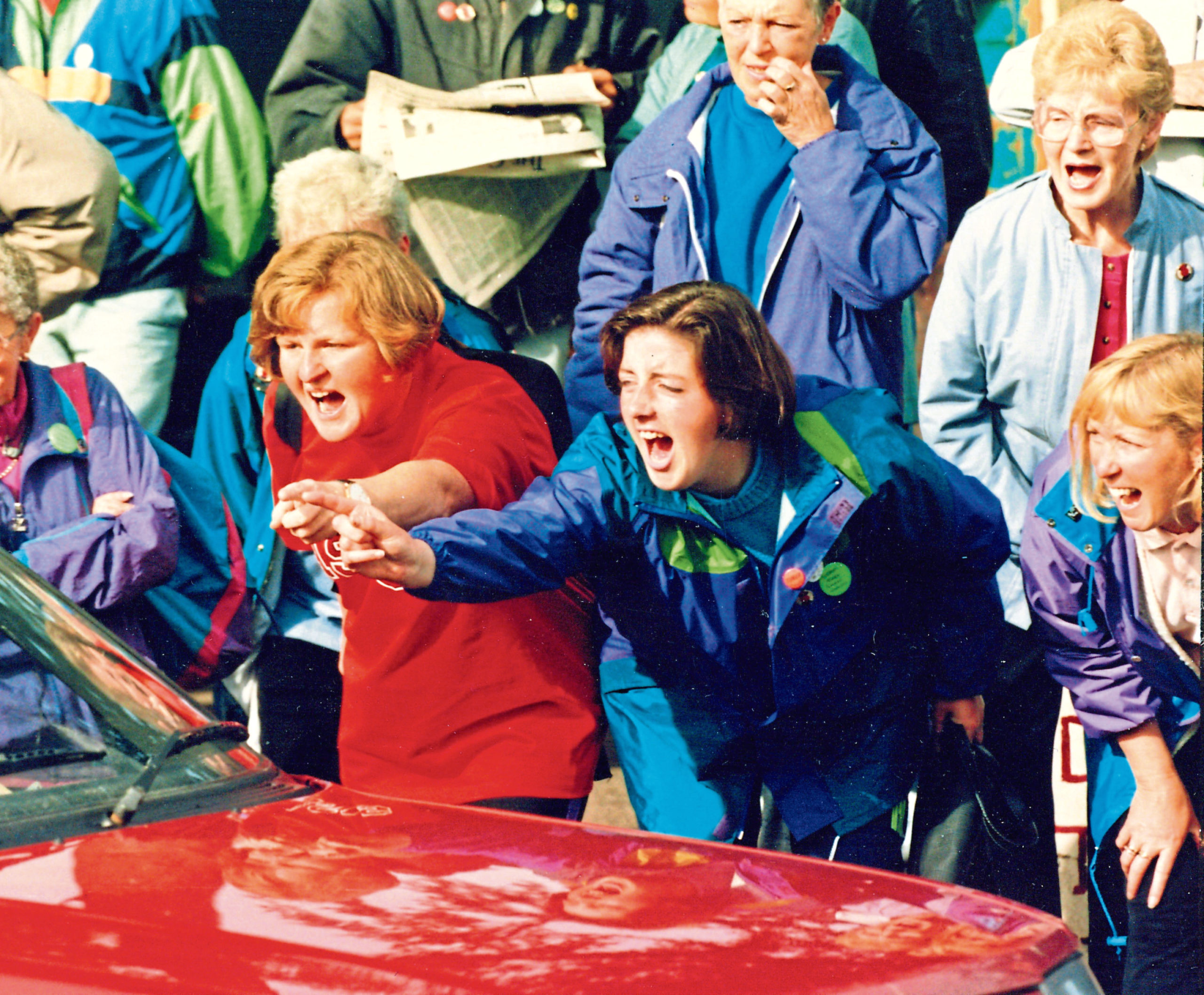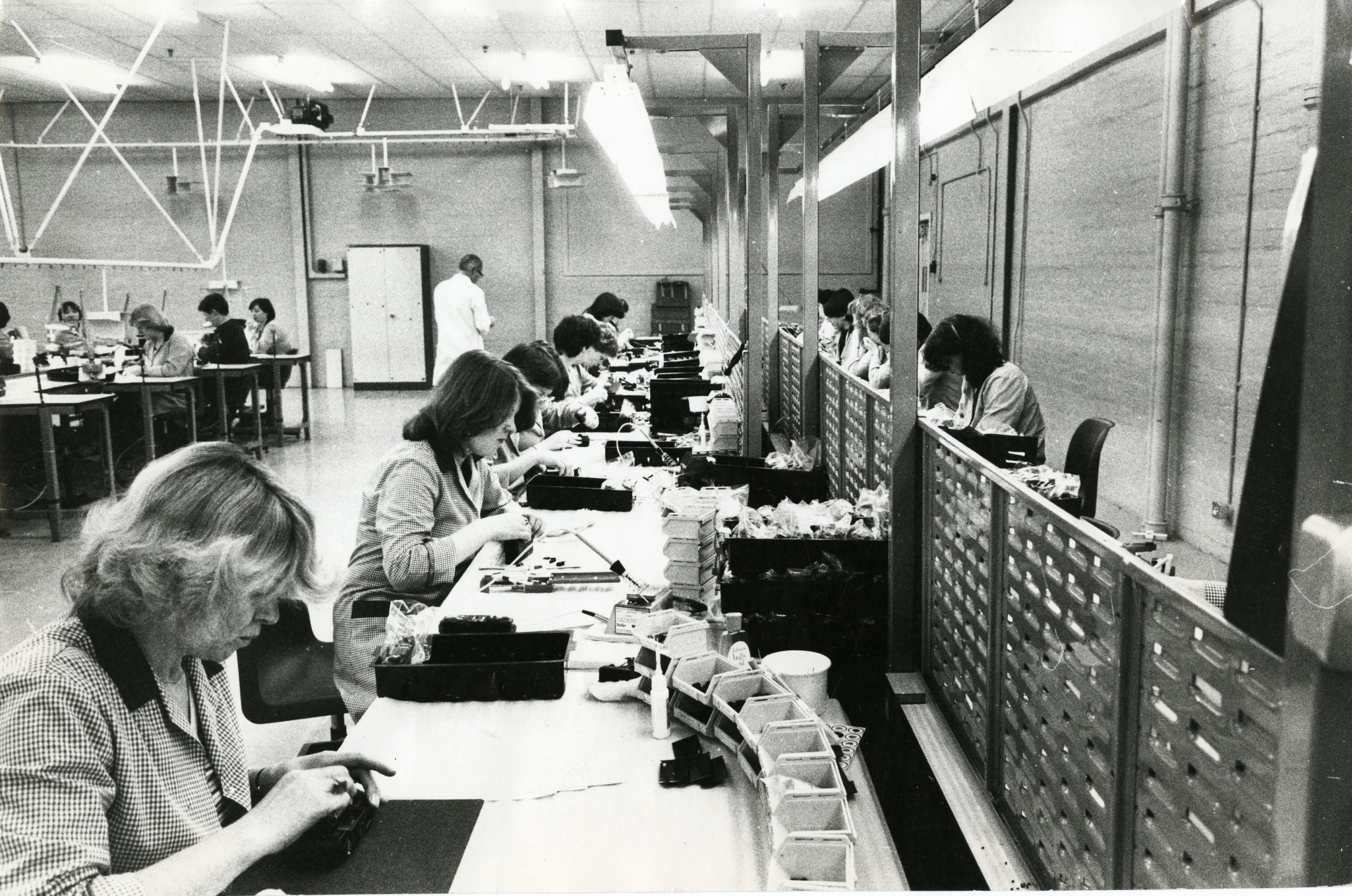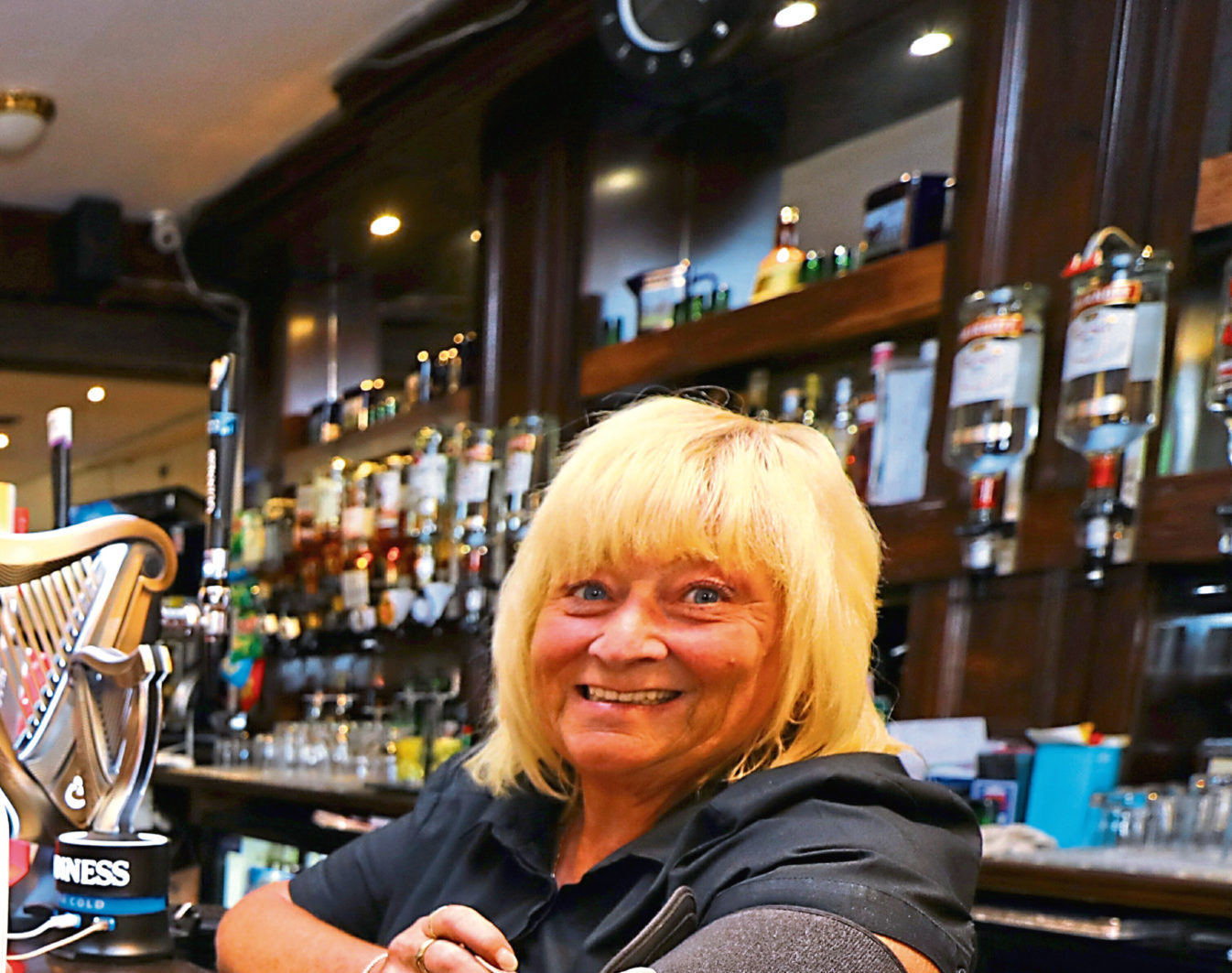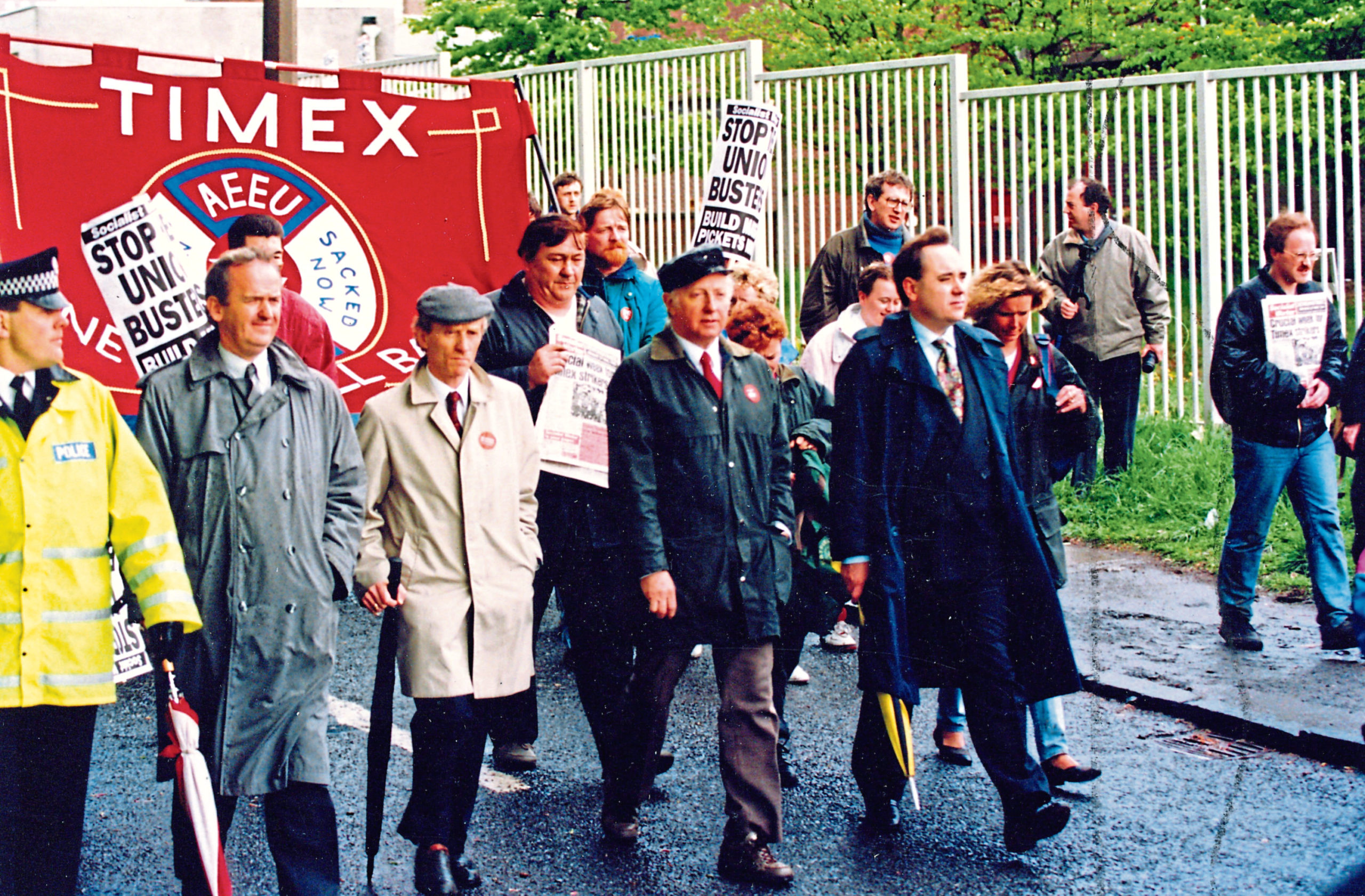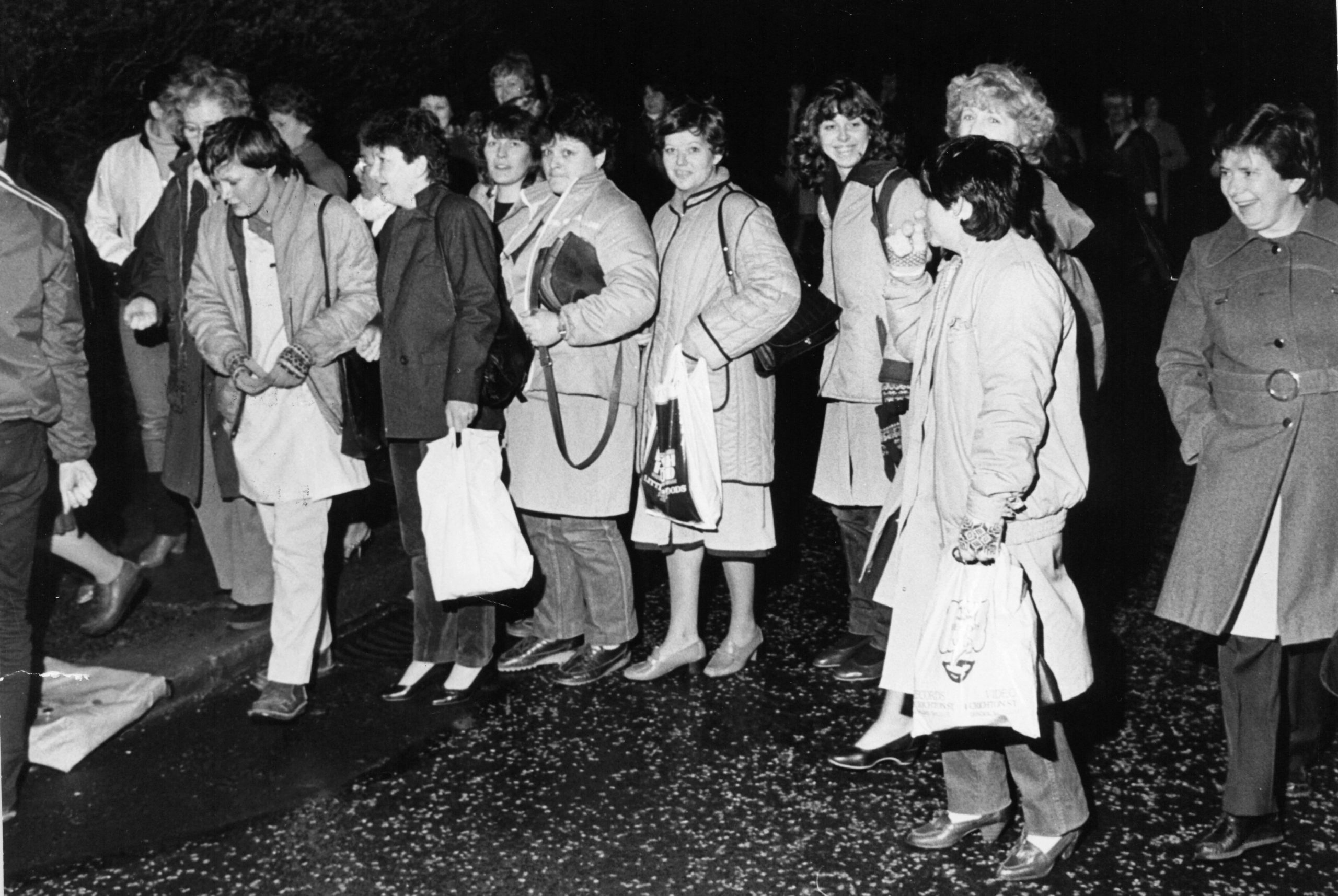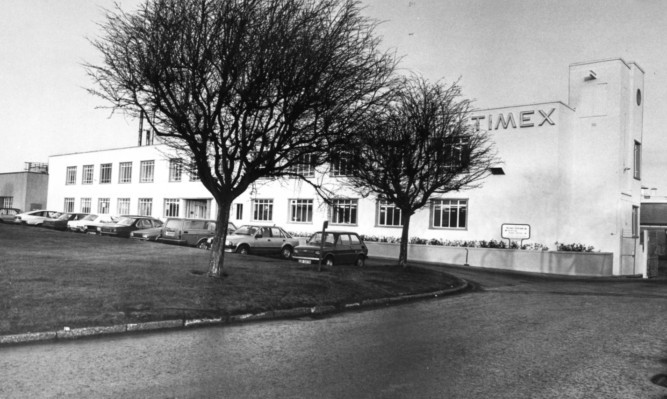Snarling faces twisted with hate scream abuse at the bus windows.
And inside the double-deckers, huddled together, are the “scab” workers with heads bowed and wrapped in jacket hoods to hide their faces.
Several even drop to the floor to avoid being recognised.
The scene is more than 25 years ago outside Dundee’s Timex factory but the scars still run deep in the city, as BBC Scotland reveals tonight in a documentary examining the dispute.
The programme – to be screened on the BBC Scotland digital channel at 10pm – features a host of former workers and union officials recalling their bitter battle with management which eventually led to the company closing the business.
The BBC describes the industrial dispute as the “last full-blooded strike in Scotland” and it features as the first in a series of programmes about protests.
Former Timex employee Wendy Cobb, who now works as a barmaid in Harlequins, said: “The BBC interviewed a lot of us for the programme and we are all quite excited to see it.
“The feelings are still as strong today as they were back in the 1990s and I am sure that will come across.”
https://www.eveningtelegraph.co.uk/fp/memories-of-dundee-timex-factory-to-be-brought-back-to-life/
Wendy said that although people remember the battles between police and picket line protesters, initially there was a lot of good humour.
She added: “The cops would actually bring us coffee and pies when they were paid. Seriously.
“They were local police and a lot of them had relatives, or knew someone, who worked in the factory. But when they brought in Glasgow cops it all changed.
“The police warned us about inciting trouble, yet did nothing when the scabs came out on the buses waving their wage slips at us.”
Police also appear in the documentary, with one former officer denying they deployed “snatch squads” to seize protesters, including the recently-elected Glasgow city councillor Tommy Sheridan.
>> Keep up to date with the latest news with Evening Telegraph newsletter
Furious Timex workers, mainly women, had downed tools and launched their strike after management announced the loss of 110 jobs and singled out many trade union officials.
The strike started in January 1993 and became national news with hand-to-hand struggles, arrests and reports of intimidation of “scab” workers at their homes.
One man who appears on the programme claims he knew of a fellow employee having a petrol bomb thrown at her front door.
The man has his face blurred in the programme and is the only interviewee to be on screen without his real name.
He said: “Cans of coke and coffee were thrown over cars and there were incidents of vandalism.
“I always carried a pick axe handle in the back of my car.”
Timex, an American business, originally came to Dundee in 1946, beginning with 11 employees in a converted farm building.
But at its peak, in the early 1970s, it was employing about 7,000 people and back then almost every child’s first wristwatch was a Timex.
The firm employed generations of the same families and when it finally folded Dundee was devastated.
But Wendy insists: “If I had to do it again tomorrow, I would.”
